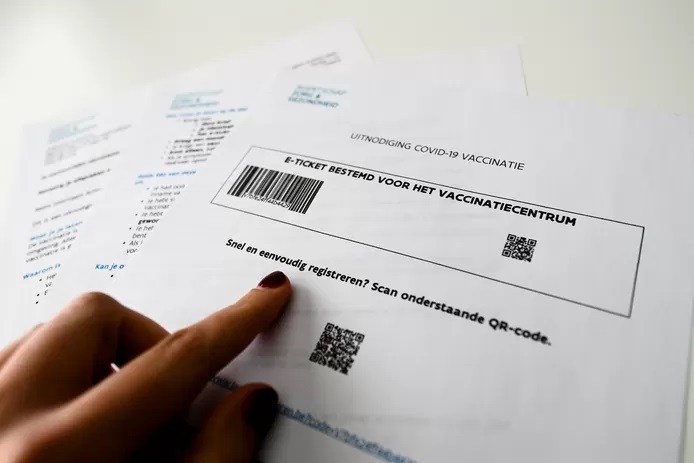Belgium's National Crisis Centre has issued a warning to the public to be on the lookout for scammers pretending to make contact regarding the vaccination timetable.
Until now, the vaccination programme has been busy with special groups: nursing home residents and staff, medical staff and other front-line workers.
Since Thursday, though, invitations have been going out to the next group to be vaccinated, the over-75s. Reports are already coming in of members of the public being approached by telephone or email, by people claiming to be from the vaccination service, and often asking for personal details like bank account numbers.
Such invitations, said Yves Stevens from the Crisis Centre, are most likely to be fake.
“In principle, everyone always receives an invitation by post,” said Stevens.
“If your details are known, you will also receive an invitation by text message or e-mail. However, if you only get a message via text or email, that's suspicious. All invitations by e-mail also come from the same e-mail address: noreply@doclr.be. So be sure to check the sender of the email invitation.”
Invitations are always sent to the recipient by name and in the language in which they are registered at the local commune.
“If you get a message that is not addressed to you personally, you have to watch out,” said Stevens.
“You are also always invited by the Flemish, Brussels or Walloon government and you will never receive an invitation from one of the vaccine manufacturers, such as Pfizer, Moderna or AstraZeneca.”
And under no circumstances should you reveal bank details – or indeed any other details. The vaccination service already has all it needs. And vaccination is entirely free in Belgium; there is nothing to pay, now or later.
Finally, the vaccination authorities will never contact you by telephone.
Anyone who receives a fake email is asked to forward it immediately to the address suspicious@safeonweb.be.
“Under no circumstances click on the links in those messages or open any attachments," said Stevens.
“Do not enter any details and then delete the message immediately.”
If you have already entered bank details, contact your bank or Card Stop (). That way, any fraudulent transactions can be stopped.
If you hand over your password that you use elsewhere, change it as soon as possible, and report the fact to the police.
Bruzz, meanwhile, has published an example copy of exactly what the form looks like (pdf, NL) that comes in the post.
Alan Hope
The Brussels Times

